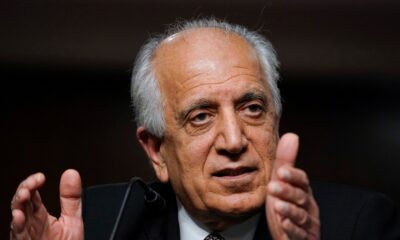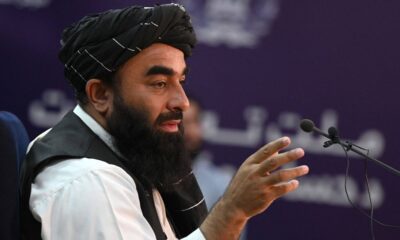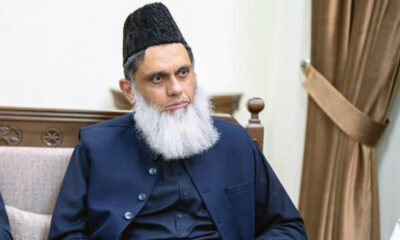Health
U.S. man recovering after ‘breakthrough’ pig-heart transplant
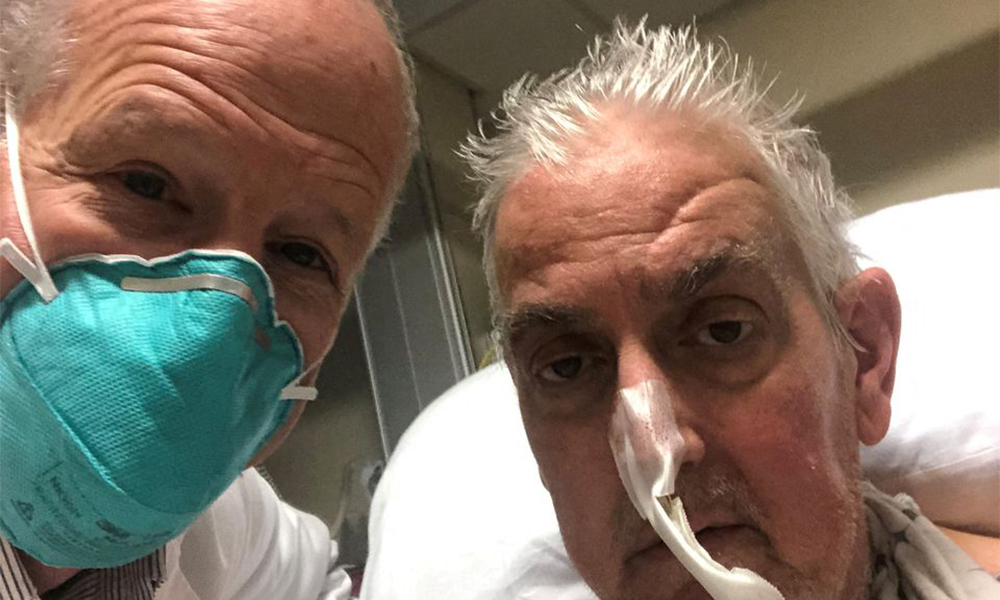
A U.S. man with terminal heart disease was implanted with a genetically modified pig heart in a first-of-its-kind surgery, and three days later the patient is doing well, his doctors reported on Monday.
The surgery, performed by a team at the University of Maryland Medicine, is among the first to demonstrate the feasibility of a pig-to-human heart transplant, a field made possible by new gene editing tools, Reuters reported.
If proven successful, scientists hope pig organs could help alleviate shortages of donor organs.
“This was a breakthrough surgery and brings us one step closer to solving the organ shortage crisis. There are simply not enough donor human hearts available to meet the long list of potential recipients,” Dr. Bartley Griffith, who surgically transplanted the pig heart into the patient, said in a statement.
“We are proceeding cautiously, but we are also optimistic that this first-in-the-world surgery will provide an important new option for patients in the future,” Griffith added.
According to the report for 57-year-old David Bennett of Maryland, the heart transplant was his last option.
“It was either die or do this transplant. I want to live. I know it’s a shot in the dark, but it’s my last choice,” Bennett said a day before his surgery, according to a statement released by the university.
To move ahead with the experimental surgery, the university obtained an emergency authorization from the U.S. Food and Drug Administration on New Year’s Eve through its compassionate use program.
“The FDA used our data and data on the experimental pig to authorize the transplant in an end-stage heart disease patient who had no other treatment options,” said Dr. Muhammad Mohiuddin, who heads the University’s program on xenotransplantation – transplanting animal organs into humans.
About 110,000 Americans are currently waiting for an organ transplant, and more than 6,000 patients die each year before getting one, according to organdonor.gov.
Bennett’s genetically modified pig heart was provided by Revivicor, a regenerative medicine company based in Blacksburg, Virginia. On the morning of the surgery, the transplant team removed the pig’s heart and placed it into a special device to preserve its function until the surgery, read the report.
Pigs have long been a tantalizing source of potential transplants because their organs are so similar to humans. A hog heart at the time of slaughter, for example, is about the size of an adult human heart.
Other organs from pigs being researched for transplantation into humans include kidneys, liver and lungs.
According to Reuters prior efforts at pig-to-human transplants have failed because of genetic differences that caused organ rejection or viruses that posed an infection risk.
Scientists have tackled that problem by editing away potentially harmful genes.
In the heart implanted in Bennett, three genes previously linked with organ rejection were “knocked out” of the donor pig, and six human genes linked with immune acceptance were inserted into the pig genome.
Researchers also deleted a pig gene to prevent excessive growth of the pig heart tissue.
The work was funded in part with a $15.7 million research grant to evaluate Revivicor’s genetically-modified pig hearts in baboon studies.
In addition to the genetic changes to the pig heart, Bennett received an experimental anti-rejection drug made by Kiniksa Pharmaceuticals based in Lexington, Mass.
Health
Afghanistan faces acute shortage of specialist doctors, officials urge ethics and expansion of health services
Noor Jalal Jalali, the Minister of Public Health, said the ministry is making sustained and intensive efforts to address the gap and expand access to healthcare services in remote and underserved areas of the country.
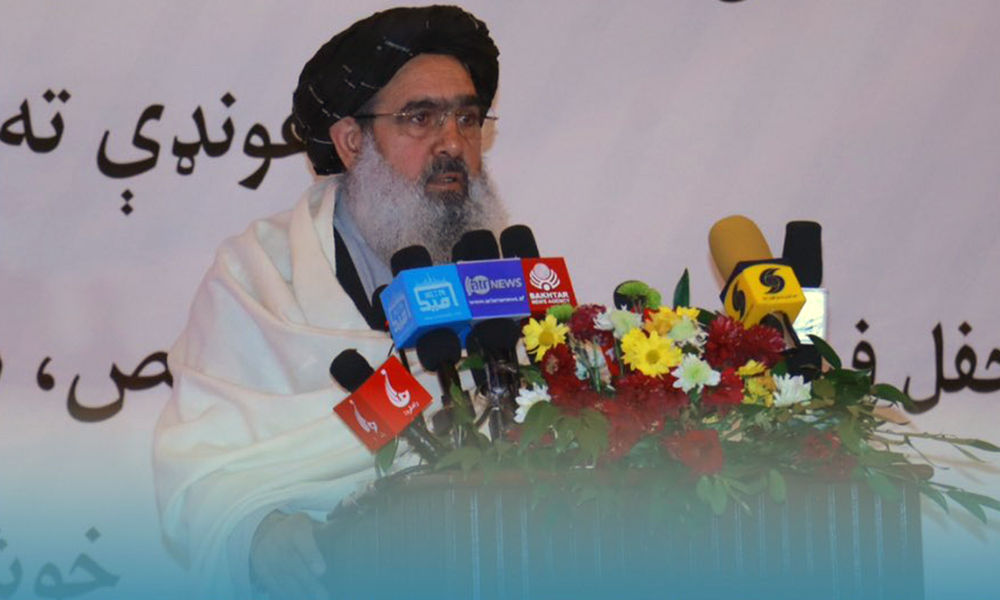
Afghanistan is continuing to face a serious shortage of specialist doctors, health officials said during the graduation ceremony of specialist physicians from the General Directorate of Medical Specialization for the year 1404.
Noor Jalal Jalali, the Minister of Public Health, said the ministry is making sustained and intensive efforts to address the gap and expand access to healthcare services in remote and underserved areas of the country.
According to Jalali, hospitals are still absent across 318 districts nationwide. He added that initial construction work for hospitals has been completed in 100 of these areas, stressing that strengthening health infrastructure and training qualified specialists remain top priorities for the ministry.
Jalali also called on doctors and health officials to uphold their professional and religious responsibilities by treating patients with compassion, dignity, and good conduct. He emphasized that medical practice should not be driven by material gain, but by the pursuit of public service and the well-being of the people.
Speaking at the same ceremony, Hamdullah Nomani, Minister of Communications and Information Technology noted a decline in public trust toward some medical professionals, saying that despite the presence of many committed and ethical doctors, the behavior of a few motivated solely by financial gain has undermined patient confidence. He urged newly graduated specialists to serve with sincerity and restore public trust in Afghanistan’s healthcare system.
Meanwhile, Abdul Wali Sadiqi, the financial and administrative deputy minister of public health, advised graduates to remain committed to their profession, fulfill their responsibilities honestly, and serve the public with dedication. He stressed that efforts in national service should match those made in personal affairs.
In addition, Abdul Baqi Haqqani, head of the National Examinations Authority, highlighted that humans carry two fundamental responsibilities: worship of Allah and preservation of health, underscoring the vital role doctors play in safeguarding public health.
Health sector experts say Afghanistan now needs skilled and professional medical personnel more than ever, calling for increased investment in specialist training and healthcare infrastructure to meet the country’s growing needs.
Health
Afghan delegation heads to Turkey for medicine talks

Naemullah Ayoubi, Director General of Drug and Health Products Regulation at Afghanistan’s Ministry of Public Health, has departed for Turkey on an official visit accompanied by a technical delegation.
The Ministry of Public Health said the delegation will hold meetings with officials from Turkey’s pharmaceutical regulatory authority and discuss a number of key issues related to the regulation of medicines and health products.
The delegation is also scheduled to visit several pharmaceutical manufacturing factories in Turkey.
According to the ministry, the visit aims to strengthen coordination between the two countries in the production and import of medicines, in order to ensure the availability of high-quality and affordable pharmaceuticals for people in Afghanistan in both the short and long term.
Health
Afghanistan opens first national cancer diagnosis and treatment hospital
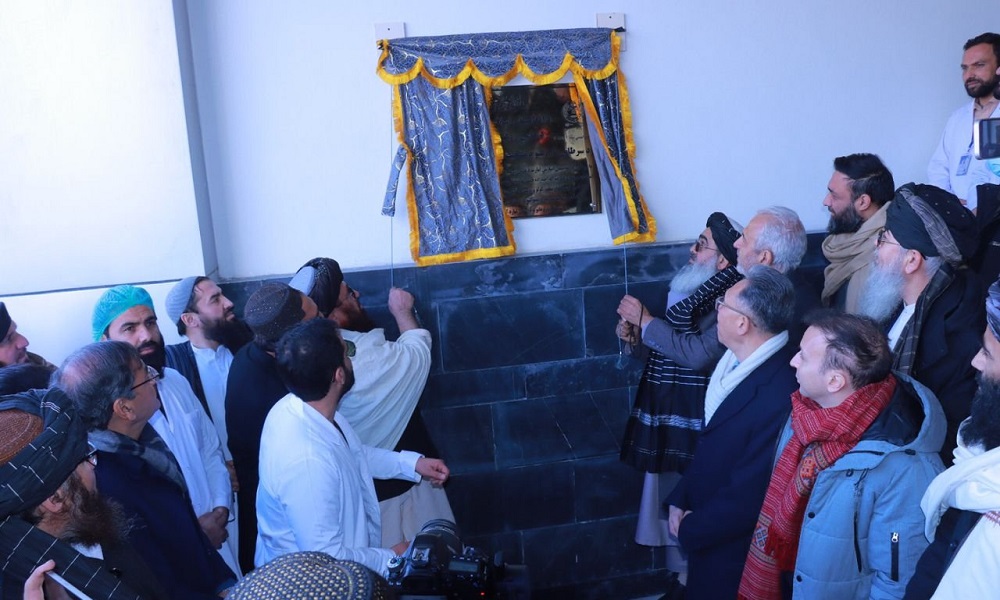
The Ministry of Public Health announced on Thursday that Afghanistan has inaugurated its first national hospital dedicated to the diagnosis and treatment of cancer, marking a major step forward in the country’s healthcare services.
The facility, named the National Cancer Diagnostic and Therapeutic Hospital, has officially begun operations and will provide specialized care for cancer patients across the country.
Speaking at the inauguration ceremony, Public Health Minister Noor Jalal Jalali said the 200-bed hospital aims to offer hope and improved treatment options for patients suffering from cancer.
“Fortunately, we are jointly opening a 200-bed hospital for cancer patients, and we hope that this hospital will become a source of hope and healing for those in need,” Jalali said.
The minister added that specialized training programs will soon be launched at the hospital to educate and train domestic medical specialists. He noted that reforms have already been implemented to improve facilities and ensure better healthcare services.
Jalali also emphasized international cooperation in the project, saying that radiotherapy services will be introduced at the hospital with support from India. According to the ministry, India has so far provided $1 million in assistance, including 10 tons of medicines and medical equipment, to support cancer treatment in Afghanistan.
The opening of the hospital is expected to reduce the need for Afghan patients to seek costly cancer treatment abroad and improve access to specialized care inside the country.
-
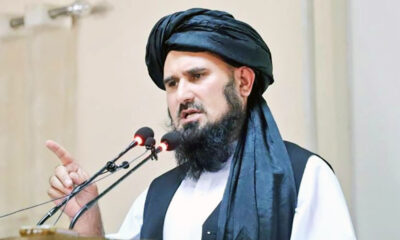
 Latest News5 days ago
Latest News5 days agoAfghanistan’s Chief of Armed Forces underscores readiness and equipment for national defense
-

 Latest News4 days ago
Latest News4 days agoAfghanistan welcomes investment and technology partnerships with India
-

 Sport4 days ago
Sport4 days agoAfghan Peaks founder climbs Aconcagua to promote Afghanistan’s mountain potential
-

 Latest News3 days ago
Latest News3 days agoIndian customs seize Chinese walnuts falsely declared as Afghan
-

 Business4 days ago
Business4 days agoPakistan allows re-export of stranded Afghan transit cargo
-
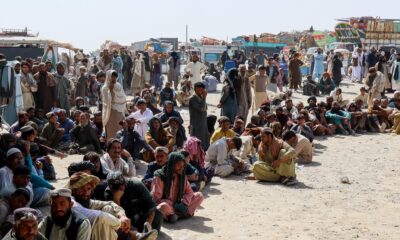
 Latest News3 days ago
Latest News3 days agoPakistan’s Punjab to send home 20 more Afghans in repatriation drive
-

 Latest News4 days ago
Latest News4 days agoPakistan signals possible air strikes as Kabul releases Pakistani soldiers in goodwill move
-
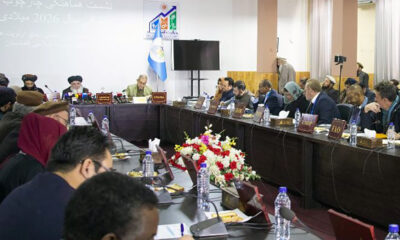
 Business5 days ago
Business5 days agoAfghanistan’s 2026 Development Framework meeting highlights self-reliance and economic stability




